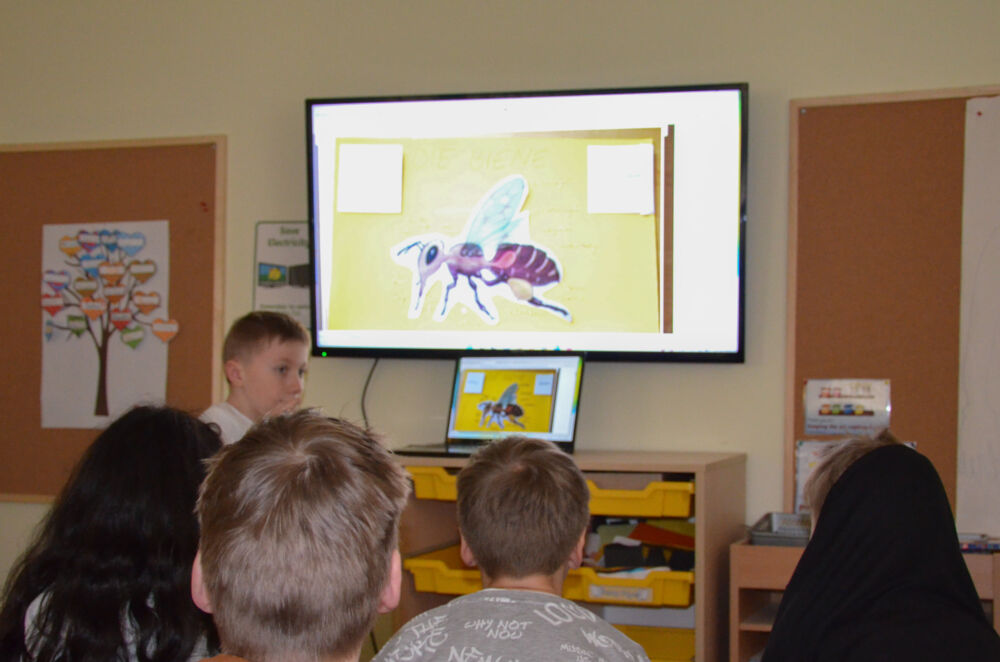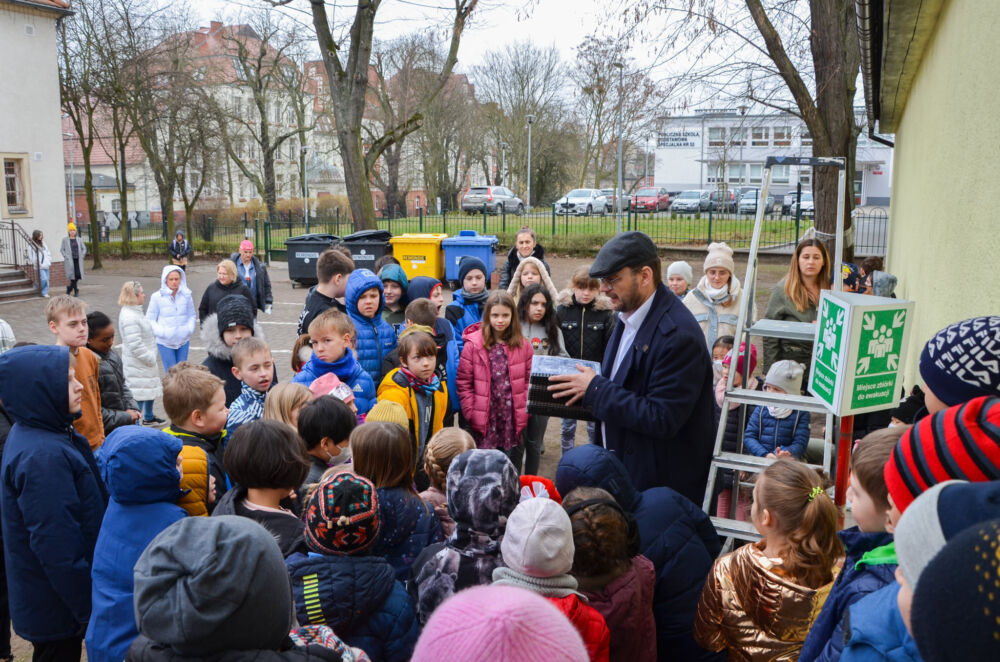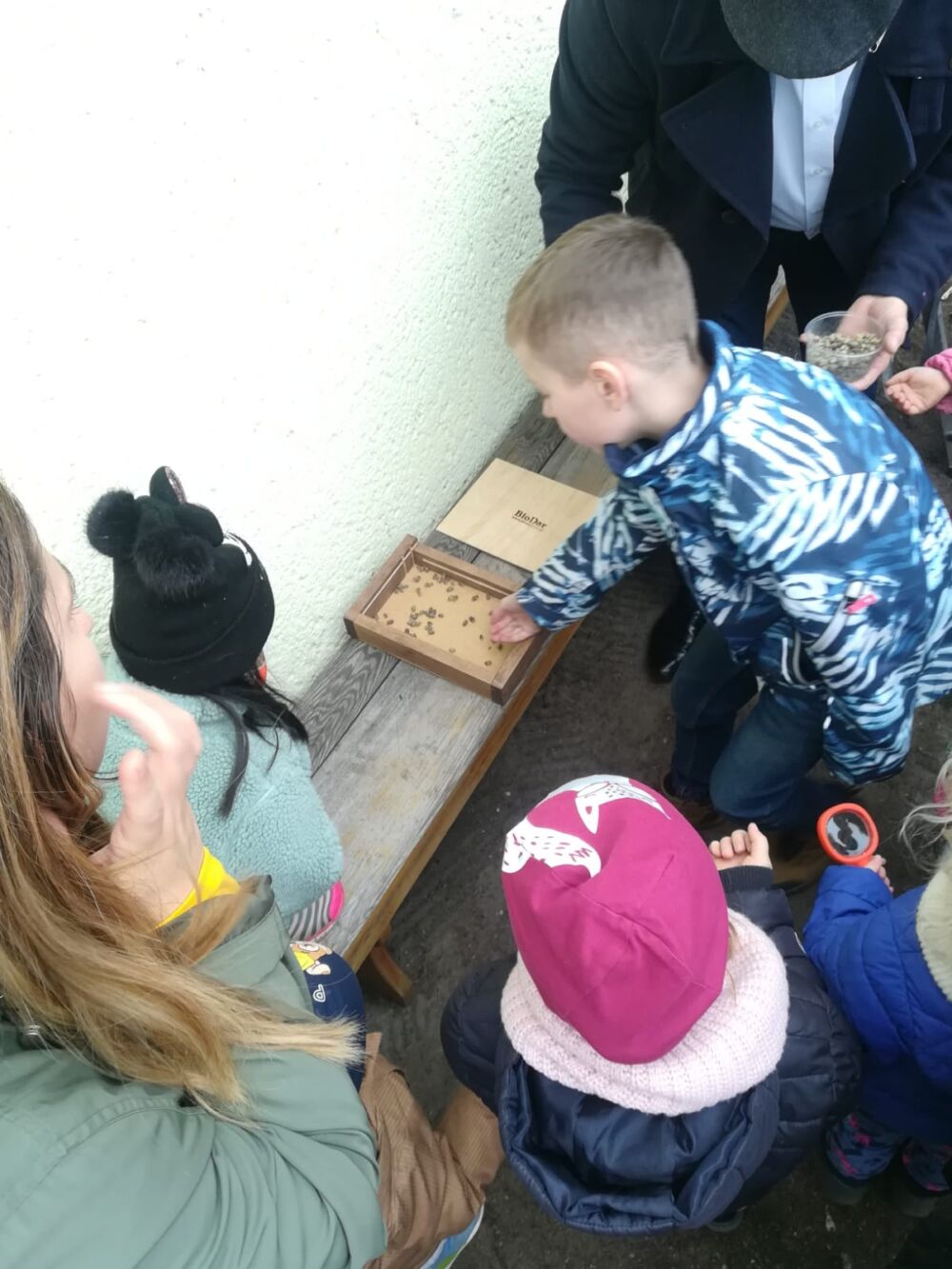Students around the world are focusing on drawing attention to the impact of climate change through their actions and sometimes by taking part in protests. In doing this, they also provide concrete and visible help in the face of the other environmental disasters of our time, one of them being the massive extinction of wild animals. At SAIL International School in Poland, we find that when our students see they can make a difference, it helps them on their way to becoming responsible and active citizens.
Our school is situated close to the border of Germany, where the population of flying insects has decreased by more than 75 percent in the last 30 years. These include wild bees. The challenge with dying insects is that the public is not as vocal and aware of the problem, as they are about climate change. We are experiencing a severe threat to biodiversity. To help reduce the effects, our students have started breeding and keeping bees in the school.

Why are the bees dying?
There are many reasons why bees are dying, and this is still being studied. Urbanisation destroys the bees’ natural habitat. Agro-industrial monocultures (modern-day farming) and the associated loss of wild native plants, as well as the excessive breeding of honeybees, deprive the bees of their food base. Finally, the rising temperatures due to climate change disrupt both the hibernation of the bees and the brief flowering periods of their forage crops. This causes the bees die of starvation.
Why we started the Bee Project
We decided to raise solitary bees on our school grounds for two reasons:
- To give our students the opportunity to help bees. Bees are indispensable for the environment, pollination, and the propagation (growing) of plants. Two-thirds of all crops depend on beneficial insects. They ensure the spread of hundreds of thousands of plants, on which countless animal species depend for food. Without bees, there is no future for nature and agriculture as we know it. We are not talking about a time in hundreds of years, but the lifetime of our students, and this project means children can do something about their future.
- To give the bees the opportunity to help our students. According to statistics drawn from a survey conducted in elementary and secondary schools, around 36% of the surveyed students have a phobia of insects or spiders. Although anyone, at any age, can develop a specific phobia, most develop it in childhood and adolescence. The usual treatment of this phobia focusses on developing a positive and realistic image of harmless and useful animals and involves gradual exposure to them in a safe and controlled environment. The Bee Project serves as a natural therapy against animal phobia.

What’s involved in running the project
We divide The Bee Project into three stages:
In the Information Stage, students learn in age-appropriate workshops about the importance of bees, their body, food and lifecycle and the fact that solitary bees are harmless and do not sting. They learn also about honey bees and how to behave towards the insects.
The second stage is the Protection and Care stage. This includes getting students involved with assisting in buying new cocoons and picking them up from the mail station. In a general gathering, all students put the cocoons into the bee hotel themselves. In a practical workshop, they can build a bee hotel. They sow and plant wildflowers in a fenced-off area. They prepare signs and information boards in English, Polish and Ukrainian to inform parents, neighbours, and passing pedestrians that the bees are harmless and must not be killed. At the end of the season, the active animal protectors may collect the cocoons for the winter and clean the bee hotel for the bees.

Finally, there is the Experience of being in harmony with nature stage. During break times, the students experience the bees hatching and buzzing in the schoolyard, pollinating the fruit trees and flowers, and building the nest for the next generation of “bee babies”. In the summer and autumn months, the whole school community looks forward to the rich harvest from the fruit trees. To celebrate, the students bake and bring cakes and enjoy the sweet results of their good cause. Many of the students say there is no application on their smartphones that can replace such an experience.
Thinking of starting a Bee Project in your school? Here are some tips from our school
- Most bees do not survive the winter, and many are eaten by birds or wasps during the flight time. We bought 400 – 500 cocoons to keep a stable population. It is best to buy from a regional supplier, to avoid any new diseases being introduced to the local insects. The order should be placed early in winter as traders stop selling the cocoons if it gets too close to hatching.
- Removing the cocoons from the bee hotel over winter protects them better against parasites. Cocoons should be held cool to about 4 degrees, but not in a food refrigerator that is opened several times a day and attracts moisture. Cocoons tolerate higher temperatures for a short time, but if it is constantly too warm, the bees’ organisms become too active, and they die of starvation.
- “Bee-bomb” seeds, (a mixture of native wild forage plants for bees) are an easy food solution. However, depending on the weather, the bees can hatch quite early and need food from grown flowers or trees from the start. We therefore also use seedlings.
- At our school, all parents responded positively and enthusiastically to the bees. But please consider the statistic: around 10% of society fears insects and may need careful convincing that the buzzing bees are harmless to their children.
This project makes a big impact and is easy to organise. The adult bees only live about two months towards the end of the school year. They do not require constant feeding or care from teachers like many other animals.
Do you have a project in your school to teach environmental responsibility? We would love to hear from you. Please share your stories with us on outlook@cambridgeinternational.org to be featured on the blog
Further reading
Cambridge University Press and Assessment appoint first global director for climate education
Students say climate change is one of the most pressing issues facing the world





